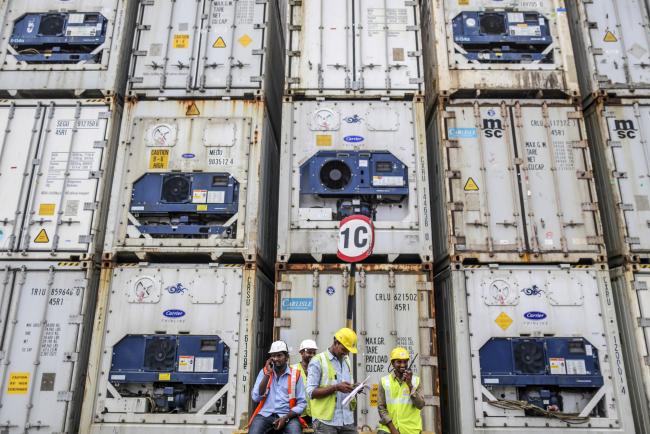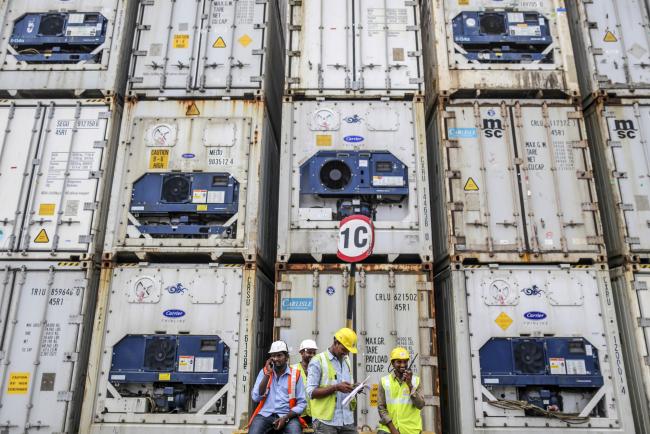(Bloomberg) -- The prime minister of Denmark said the security reasons given by the White House for imposing tariffs on Europe make no sense, as he questioned the underlying logic of U.S. trade policy.
“It’s bordering on the absurd to impose tariffs using national security as an argument for goods arriving in the U.S. from America’s closest ally, namely Europe,” Lars Lokke Rasmussen told reporters in Copenhagen on Tuesday.
Rasmussen, who met President Donald Trump in Washington a year ago, said an exemption from trade tariffs granted to the EU until May 1 is expected to become permanent. “But obviously we need to prepare for the event that” the tariffs take effect again after that date, he said.
“This is serious,” Rasmussen said. “Imposing trade taxes on European steel and aluminum is serious in its own right, and we would have to answer back.”
Denmark is due to host U.K. Prime Minister Theresa May next week, where discussions will focus on trade. Rasmussen also said the deterioration in relations with Russia means EU leaders are likely to agree to extending sanctions beyond June.
WTO Warning
The head of the WTO warned of the fallout from a trade war, urging nations to step back from the brink and avoid ratcheting up tension.
It’s a “very delicate” moment in trade relations between some of the world’s large economies, World Trade Organization Director-General Roberto Azevedo said Tuesday at a conference in Lisbon.
The world is struggling with how to respond to Trump, who imposed steel and aluminum tariffs on allies and adversaries alike last month, granting temporary waivers to some amid further security and trade negotiations. China, which is being threatened with additional levies on $50 billion of its products, shot back with tariffs of its own this week while also calling for more talks. The threat of a trade war helped unnerve investors, leading to the worst three months in global stocks in more than two years.
“An escalation of these frictions will have very negative consequences for global economic growth and for job creation,’’ Azevedo said. “We have to be worried about the motivations behind those tensions and the potential systemic consequences. It’s important to avoid an escalation.’’
Azevedo said he’s in contact with all the “actors,” without mentioning any countries. “It’s necessary that the lines of communication are open and that there is a genuine will to find constructive solutions. It’s the most important and urgent challenge we have today.’’

